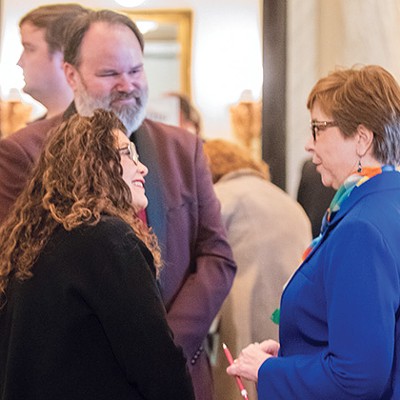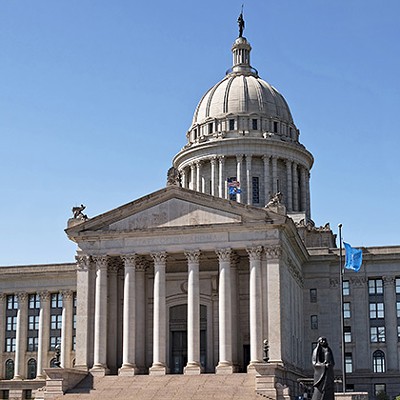There is a great disturbance in the Indian casino force. They have a new enemy " organized unions.
That was the message conveyed during a session at the Sovereignty Symposium, an early June event hosted by the state Supreme Court. At one point, a panel discussion on various gaming issues focused on one topic and warned of dire consequences.
POSSIBLE UNIONIZATION
UPWARD TICK
EMPLOYEE-UNION RELATIONSHIP
"The unions are coming to Indian Country," said Jess Green, an Ada attorney with the Chickasaw Nation, which owns some of Oklahoma's biggest casinos. "The bigger our facilities, the more they look like something they (unions) want to jump right in."
POSSIBLE UNIONIZATION
Green, who moderated the panel, and other panelists used words like "danger," "nightmare" and "coming storm" to describe their feelings about possible unionization of their casino employees. Some panelists were clear tribes should be afraid, very afraid.
"We are in a danger unlike we have ever been through before because of a change in regulatory perception, federal court decisions and simply because we're making a lot of money," Green said.
The issue of unions moving into tribal casinos took a dramatic turn two years ago when the National Labor Relations Board, which regulates union activity, ruled the tribes were not immune to the National Labor Relations Act because of sovereignty. The ruling in the San Manuel Band of Mission Indians case prohibits tribes from interfering in casino employee attempts to unionize. The tribe, which owns a casino in Southern California, supported one union's effort to organize the employees at the casino, but excluded other unions from organizing. The tribe argued that, because of sovereignty, they had the right to support and exclude whomever they wanted. But the NLRB thought otherwise and placed the tribe under the act.
In Oklahoma, the state Supreme Court ruled in 2008 that state courts have jurisdiction to hear liability claims against tribal casinos in personal injury lawsuits.
To hammer home the point of how dangerous unions are to the casinos, the panel discussion was turned over to Leonard Court, an attorney with Oklahoma law firm Crowe & Dunlevy. Court practices labor and employment law and serves on the U.S. Chamber of Commerce labor relations policy committee.
"Putting myself in the shoes of a union organizer, the Oklahoma gaming industry is ripe," Court said. "Las Vegas and Atlantic City, those two cities are saturated in terms of trying to get more union members. They've got to start looking elsewhere. You guys are the next market."
UPWARD TICK
For the past few decades, union membership across the country has been declining. But there has been an upward tick recently. According to statistics from the American Federation of Labor and Congress of Industrial Organizations (AFL-CIO), the total number of national union members has increased each of the last two years. In Oklahoma, that number has gone up 6 percent since 2000.
Panelists said union cards are starting to show up inside their casinos.
Tim O'Connor with the Central Oklahoma Labor Federation is aware of the unionization efforts.
"I know there has been some interest from some unions, but the ones they have gone to they haven't been able to build any campaign," he said. "They had some difficulty with the tribes."
O'Connor said calls have been made to various state labor councils from casino employees, like blackjack dealers wanting information about forming a union. But to this point, no unionization campaign has been undertaken.
"It's not that they wouldn't, but you've got to have enough guys inside to take some risks to make it happen," he said, adding one casino human relations manager contacted him about some of the abuses the casino employees were going through.
EMPLOYEE-UNION RELATIONSHIP
Court told tribal officials they need to start training their casino supervisors on workforce laws and the dos and don'ts of the employee-union relationship. One member of the audience asked Court when interviewing new employees if it is appropriate to ask if they are a union member. Court emphatically said no, but then followed up with this comment.
"You want to know how to get around," Court said, asking if the doors to the room were closed before saying more. "If you look at their application and you look at their prior employment, and the last four or five employers they worked for are General Motors, U.S. Steel, Safeway grocery stores, everything they've worked at is a labor unionized employer, it might be a clue as to where their leanings are."
Then Court went back to the law.
"But the law specifically prohibits you from taking that into account. So don't do that "¦ consciously, if you understand my drift." "Scott Cooper











